Rachel Callander’s daughter was born with a rare chromosomal condition that doctors said left her “incompatible with life.” She would have dysmorphic features, grow up developmentally delayed and would never walk or talk.
“At the beginning, it was a world of chaos and turmoil and medical professionals, but Evie overcame those struggles, with strength and determination, which I think was one of her super powers,” Callander said.
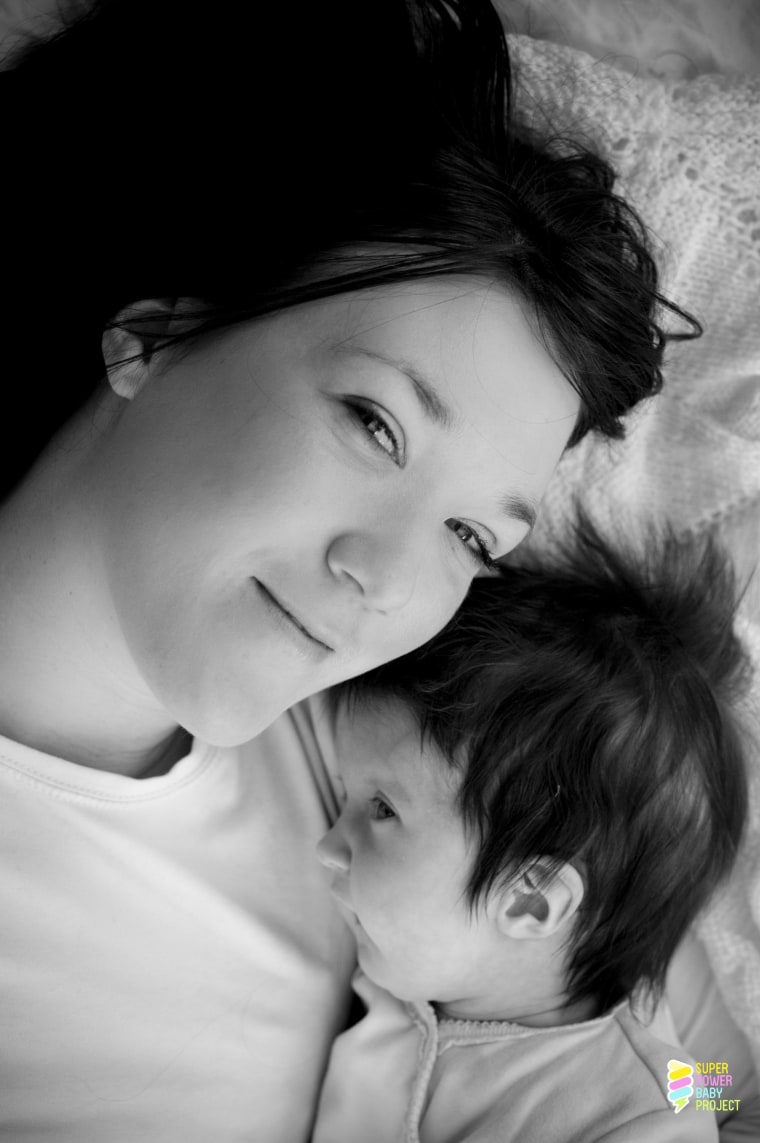
Another super power? Evie’s reaction to certain objects — particularly electric sliding doors, which always made her cry.
RELATED: Texas family adopts 6-year-old Chinese orphan with Down syndrome
“We thought it was a unique ability that not everybody had, and it was a nice way to describe her when people asked what was wrong with her,” she said. “We realized all the amazing things she was doing, so we decided just to say she had ‘super powers.’ That would be the language used to describe her disabilities.”
"Super Powers" is also how Callander, a professional photographer in New Zealand, and her husband, Sam, describe the children in her stunning picture book featuring others with chromosomal and genetic conditions.
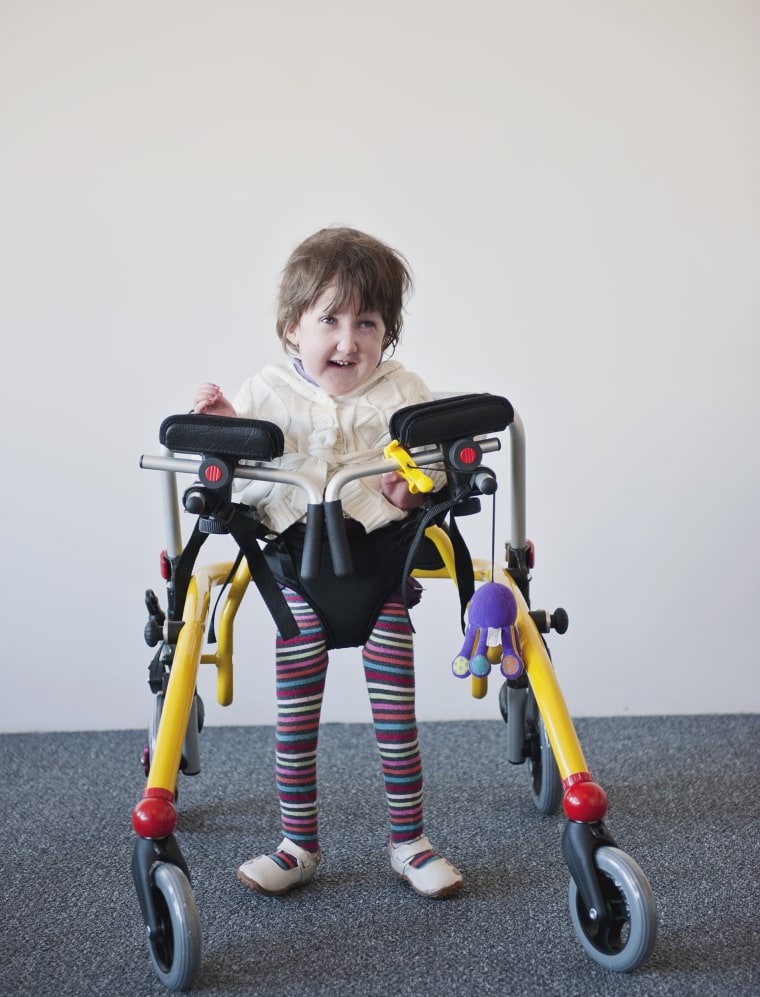
“Super Power Baby Project” features 72 children, each identified with a special heroic strength. The book is a tribute to Evie, who died in her sleep when she was 2-and-a-half.
“I don’t know if it was her heart. We chose not to have an autopsy,” Callander said. “She just had a short little beautiful life, and we learned so much from being her parents. Her legacy, I guess, has been made in the form of this beautiful book that celebrates other children with chromosomal conditions.”
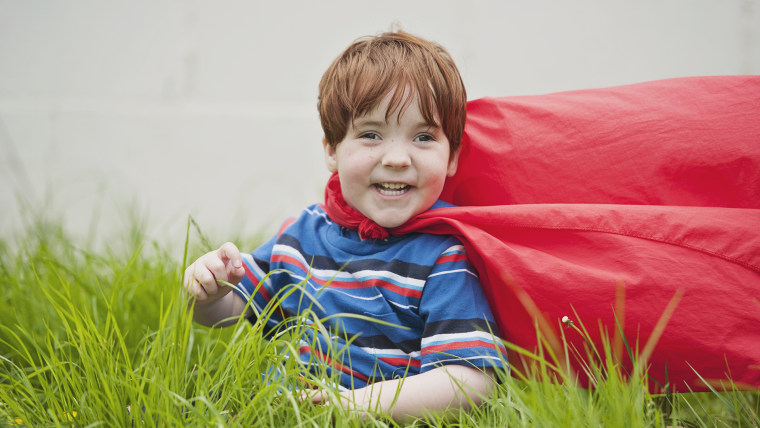
Evie was born with partial trisomy 9q and partial monosomy 6p.
“I had never had any experience with disability in my life before, so when Evie was born, a completely different world opened up to us,” Callander said.
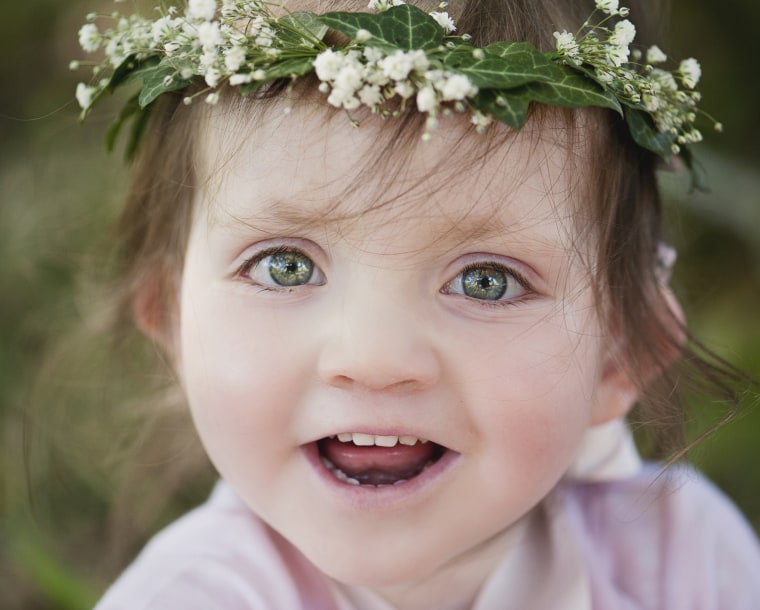
Although she couldn’t speak, Evie had her own language, including “the most adorable giggle,” her mother said. She also was mobile by “scooting around on her back” and using a special walking frame.
After coming up with the book idea, Callander set up a website and Facebook page and began seeking out families. She received submissions from all over New Zealand, but only a fraction of them made it into the book.
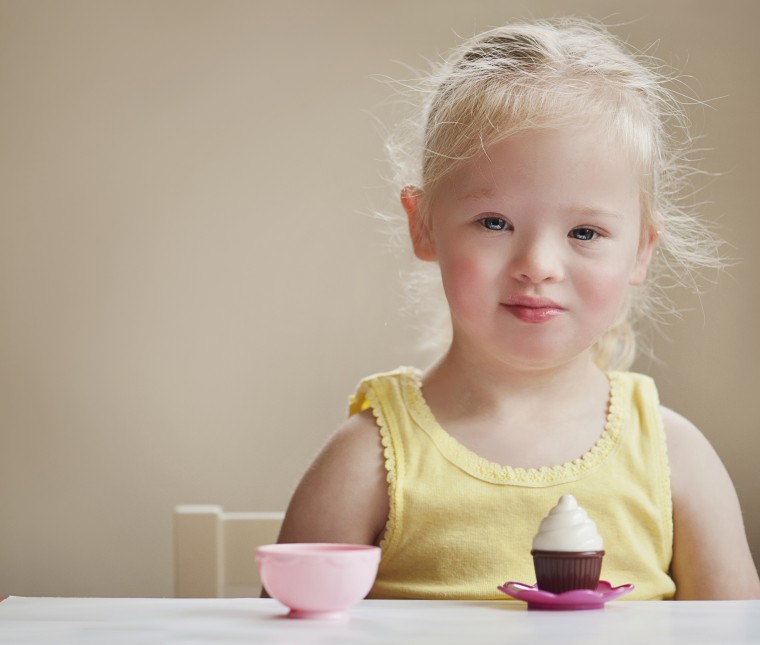
They met children with a range of conditions, including Kabuki syndrome, Angelman syndrome, Cri Du Chat syndrome, Cornelia de Lange syndrome and "a whole lot that were a series of numbers and letters representing duplications or deletions of chromosomes."
Callander said she got as much out of the photo sessions as the families who participated, particularly parents reticent about using “strength-based language” when speaking of their children.
“They told me that having a space to talk about their child in a positive way was very healing for them as they had only ever talked about their child in terms of their condition and limitations,” Callander said. “This broke my heart and made me realize how important this project was for the parents, to give them hope. They opened up and loved gushing about their child.”
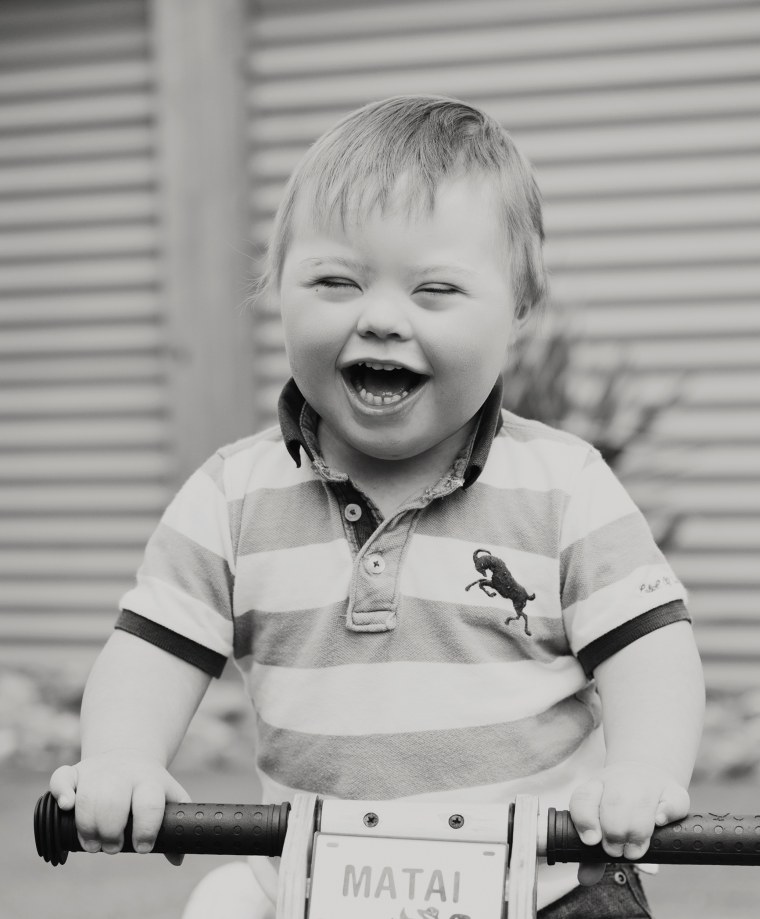
Callander said she and her husband have been overwhelmed by the response to the book, published last August and now getting broader exposure.
“This is an international issue. Disability is one of the human rights issues of our time, and to have this book be a part of that conversation is a pretty amazing thing,” she said.
Callander hopes the book will help change language used to describe children with disabilities. She also hopes it will alter perspectives and encourage people to see the potential in people who are different.
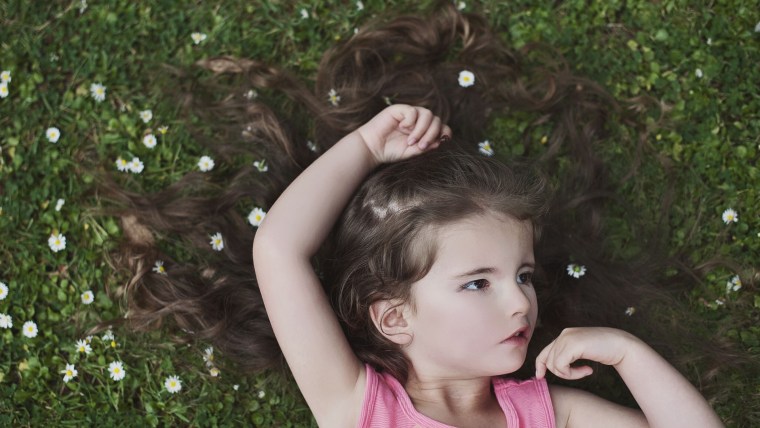
“Diversity isn’t a deficit within the person, it’s a deficit in our culture that doesn’t celebrate or encourage humanity no matter what it looks like,” she said. “That was something that struck me when I met these beautiful children, that they were full of life, and potential and abilities, and they were changing their families every day.
"It was a magnificent honor to meet them all, and I think society misses out on these interactions with children because I think we’re afraid of what’s different. It doesn’t need to be that way.”
Follow TODAY.com writer Eun Kyung Kim on Twitter.